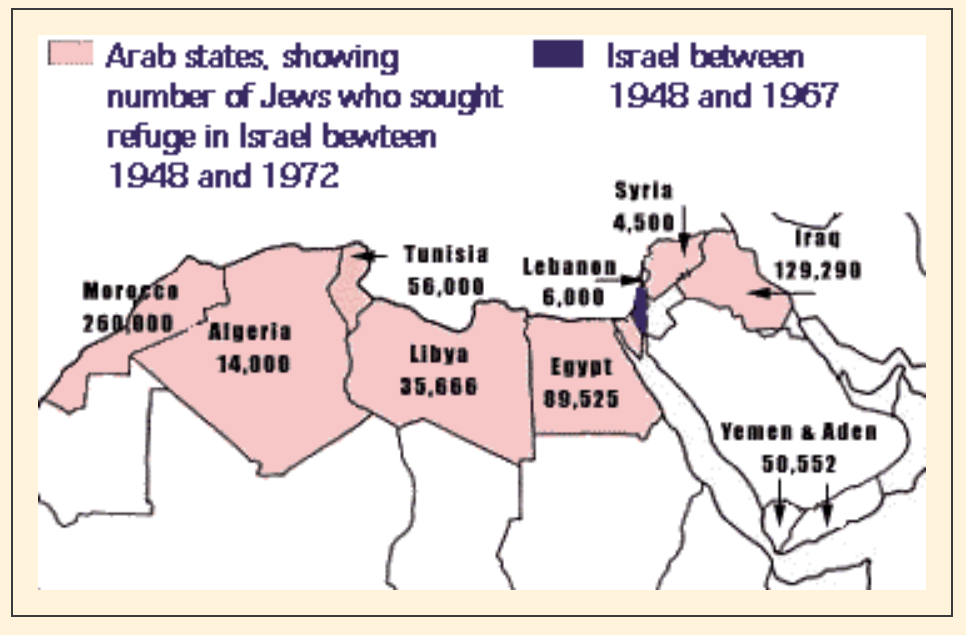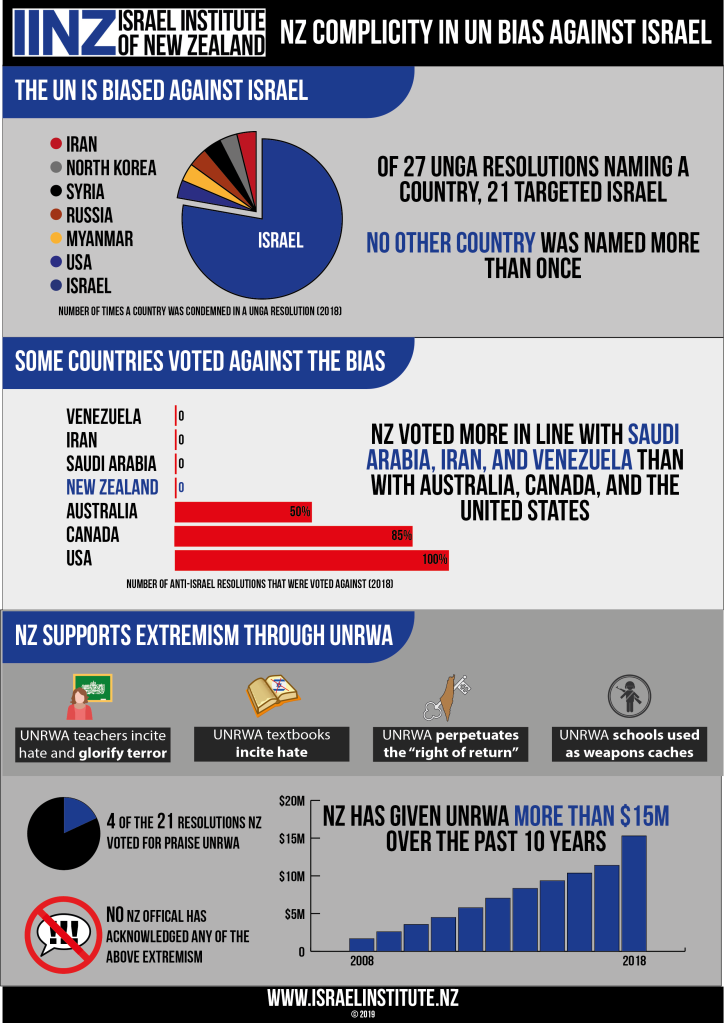Some Aspects of Israel, Refugees and UN Bias
- Get link
- X
- Other Apps
Israel occupies 0.1% of the landmass of the Middle East and it is the only Jewish state, not only in this region, but in the world, and surrounded by 22 Arab states. This tiny piece of land was offered by United Nations to Jews after Holocaust has been “powder keg” since then.

The persecution of Jews has been a major event in Jewish history, prompting shifting waves of refugees and the formation of diaspora communities. As early as 605 BCE, Jews who lived in the Neo-Babylonian Empire were persecuted and deported. Antisemitism was also practiced by the governments of many different empires (Roman empire) and the adherents of many different religions (Christianity), and it was also widespread in many different regions of the world (Middle East and Islamic).
According Wikipedia antisemitism consists of expressions of hatred or discrimination against individual Jews, and may or may not be accompanied by violence. On the most extreme end, it consists of pogroms or genocide, which may or may not be state-sponsored. Notable instances of antisemitic persecution include the Rhineland massacres in 1096; the Edict of Expulsion in 1290; the European persecution of Jews during the Black Death, between 1348 and 1351; the massacre of Spanish Jews in 1391, the crackdown of the Spanish Inquisition, and the expulsion of Jews from Spain in 1492; the Cossack massacres in Ukraine, between 1648 and 1657; various anti-Jewish pogroms in the Russian Empire, between 1821 and 1906; the Dreyfus affair, between 1894 and 1906; the Holocaust by the Axis powers during World War II; and various Soviet anti-Jewish policies. Historically, most of the world’s violent antisemitic events have taken place in Christian Europe. However, since the early 20th century, there has been a sharp rise in antisemitic incidents across the Arab world, largely due to the surge in Arab antisemitic conspiracy theories, which have been cultivated to an extent under the aegis of European antisemitic conspiracy theories.
Shocked by the experiences of the Holocaust, the Jews were finally granted asylum in their original area of residence in Palestine with the support of the international community. After the First World War, the British administration had already assigned the Jews a homeland in the mandated territory they controlled. The purpose at the time, as also later after IIWW according to the UN decisions, was that the Jews and the Palestinians in the area would live in harmony with each other in the areas assigned to them. However, this has not happened and even now Israel is at war with Hamas.
History of Conflict in the Land of Israel Since 1948:
When the “refugee issue” is discussed within the context of the Middle East, people invariably refer to Palestinian refugees, not Jews displaced from Arab countries. However thriving, prosperous Jewish communities existed in the Middle East and North Africa ( aka MENA region) a thousand years before the rise of Islam. These communities, which extended from Iraq in the east to Morocco in the west, enjoyed a lively fabric of life and were influential in the local economies. Prior to the creation of the State of Israel (1948), nearly one million Jews lived in the Middle East and North Africa, but by the end of the 20th century, all of these communities had faced “dislocation and dispersal” and largely vanished.
During Israel Intependence war local Arab communities faced “dislocation and dispersal” but – unlike Jews in Arab world – they did not vanished but those who remained become Israeli citizens with equal citizen rights same time when around 700,000–750,000 fled or were deported. So Arab Population of Israel has increased from 300,000 in 1948 to two million in 2024.

Jordan annexed the West Bank on 24 April 1950, after the 1949 armistice agreements. In 1951, King Abdullah I was assassinated by a Palestinian from the al-Husayni family. After the annexation, all Palestinians in the West Bank became Jordanian citizens. In the Jordanian parliament, there were 30 seats for both the West and East banks, making roughly equal populations. Palestinians in the West Bank did not face discrimination and were given the same equal rights as the Jordanians of the East Bank.
After the Six-Day War, Jordan lost control of the West Bank to Israel. However, the Palestinians in the West Bank lost neither their citizenship nor their seats in the Jordanian parliament. About 300,000 Palestinians fled to Jordan. In 1970, a conflict broke out between the Jordanian Armed Forces led by King Hussein and the Palestine Liberation Organization led by Yasser Arafat. This conflict was known as Black September. Palestinians had gone on a global skyjacking spree, and there were rumours of some wanting to topple or assassinate the Jordanian King. After the war, Jordan expelled the PLO to Lebanon but kept refugees and integrated Palestinian citizens in Jordan. After Israeli independence war Jordan was the only Arab country to welcome the Palestinian Arabs from and grant them citizenship and to this day Jordan is the only Arab country where Palestinians as a group can become citizens. (Source: Wikipedia)
Israeli refugees from MENA region had no desire to be repatriated. Little is heard about them because they did not remain refugees for long. Of the 820,000 Jewish refugees between 1948 and 1972, 586,000 were resettled in Israel at great expense, and without any offer of compensation from the Arab governments who confiscated their possessions. The World Organization of Jews from Arab Countries (WOJAC) estimated in 2006, that Jewish property abandoned in Arab countries would be valued at more than $100 billion, later revising their estimate in 2007 to $300 billion. They also estimated Jewish-owned real-estate left behind in Arab lands at 100000 square kilometers (four times the size of the state of Israel).
Israel has also forcibly evacuated Gaza, evacuating the Jews. In 2005, 21 Israeli settlements in the Gaza Strip were unilaterally dismantled and Israeli settlers and army evacuated from inside the Gaza Strip. The settlers who refused to accept government compensation packages and voluntarily vacate their homes prior to the August 15, 2005, deadline were evicted by Israeli security forces over a period of several days. The eviction – and dismantlement also of the four settlements in the northern West Bank – was completed ten days later. Eight thousand Jewish settlers from the 21 settlements in the Gaza Strip were relocated.

The State of Palestine has been accepted as an observer state of the United Nations General Assembly in November 2012. As of 2 June 2023, 139 of the 193 United Nations (UN) member states have recognized the State of Palestine and an equal number maintain diplomatic relations with the Palestinians. In contrast Israel is recognized by 165.

The United Nations continues to be a place where Jew-hatred thrives, and unfortunately, many democratic and free-of-the-information countries have participated in supporting anti-Semitic UN bodies and anti-Israel resolutions.

Not only Israel’s neighbours or Muslim countries are biased towards Israel, here’s an example from the other side of the globe: New Zealand’s record of supporting anti-Israel resolutions show the claims about balance, evenhandedness, and being an “honest broker” to be false.
The persecution of Jews has continued for more than two thousand years. Their most brutal manifestation was the Holocaust. Current anti-Semitism is aimed at Israel, the homeland of the Jews created on the basis of the Holocaust – of which more than a fifth of the population is, however, non-Jews – and at Jews around the world, with means ranging from brutal terrorism to condemning statements by various international organizations to boycotts instigated by individuals and Palestinian propaganda (BDS movement) and other demonstrations. However, the end result, according to a popular Israeli saying, is Am Yisrael Chai ( ’The people of Israel live’).
#NeverAgainIsNow @ArielRusila @AriRusila @ContradictorilyAR #AmYisraelChai
Appedix:
UN bias
- Get link
- X
- Other Apps



Comments